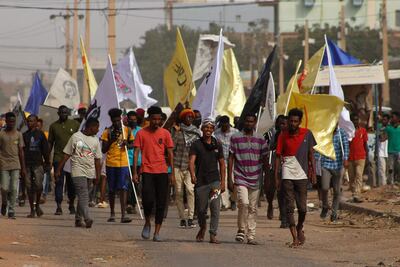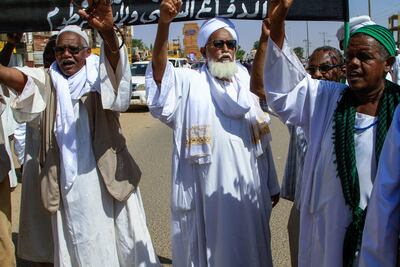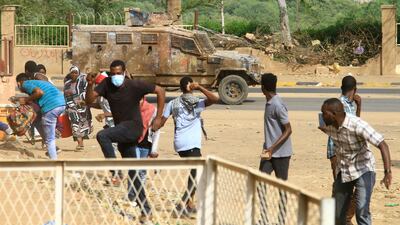Thousands of Sudanese took to the streets of Khartoum on Sunday to demand an end to military rule, witnesses said, with demonstrators marching to drumbeats and women’s ululations.
Security forces used tear gas to disperse the protesters when they approached the Nile-side Republican palace in central Khartoum and did the same in the capital’s sister cities of Bahri and Omdurman, according to the witnesses.
Video clips posted online showed the protesters marching as pillars of black smoke rose over Khartoum, possibly from burning tyres.
Many carried banners bearing images of some of the 119 protesters killed by security forces since the military seized power a year ago. They chanted anti-military slogans and waved Sudanese flags.

The military in late July invited the opposition to name a head of state and prime minister, but divisions among pro-democracy groups have prevented any progress. Additionally, the military has made it clear that it would remain the ultimate source of power, framing itself as the guardian and protector of the nation.
Last year’s military takeover, led by army chief Gen Abdel Fattah Al Burhan, derailed the country’s democratic transition after dictator Omar Al Bashir was ousted in April 2019.
It also plunged the country’s economy deeper into crisis and created a vacuum that allowed the re-ignition of tribal and ethnic violence in outlying regions in the west and south, leaving hundreds killed and tens of thousands displaced.
As security forces tried to contain the protests in Khartoum, tear gas was also fired in the capital's twin city of Omdurman, where protesters tried to cross the bridge leading to the centre of the capital.
In the eastern city of Kassala, some "800 young men and women" came out to demand civilian rule, eyewitness Hussein Mohamed Shahed told AFP.
Protesters chanted, "soldiers go back to the barracks", a regular rallying cry in near-weekly protests.

Sunday’s protests came a day after around 3,000 Islamists rallied outside the offices of the United Nations in Khartoum, demanding the expulsion of UN envoy Volker Perthes and an end to what they called foreign meddling in Sudan’s affairs.
Mr Perthes has, in collaboration with regional groups, tried to mediate between the military and pro-democracy forces to find a settlement for the country’s political crisis.
That effort has stalled but is believed to be have resumed behind closed doors.


